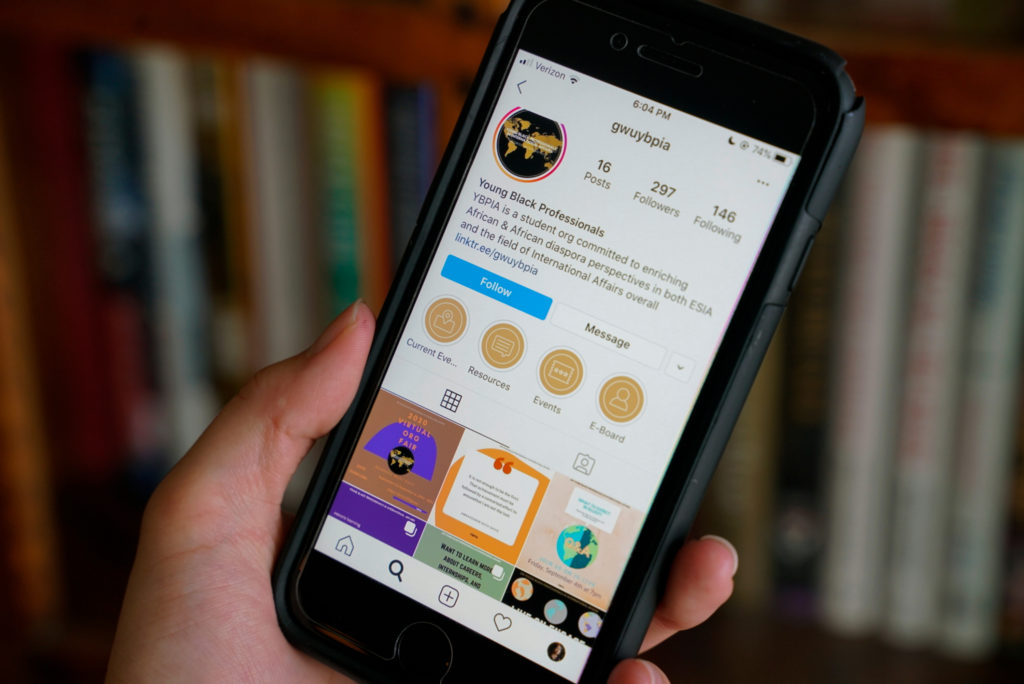Updated: Sept. 12, 2020 at 5:27 p.m.
Students in the Elliott School of International Affairs have formed two student organizations to enhance and promote African studies.
The African Development Initiative and the Young Black Professionals in International Affairs will engage with students virtually this fall with opportunities like community discussions and networking events with professionals in international affairs. Student leaders said their organizations will create inclusive spaces for students to learn about topics traditionally marginalized in the field like Africa’s development and whether or not they are in the Black community.
“You can’t just have a singular voice with just one group of people speaking about something – you need to have everyone speaking about it,” sophomore and co-founder of the African Development Initiative Crystal Nayiga said. “That’s the way that you break down the stereotype of a single story. You can’t help build a place or continent or community without the voices of other people.”
Nayiga said she and two other sophomores first had an idea for ADI in January after noticing a lack of educational opportunities for students to learn about research in Africa outside of the continent’s economic and societal problems. She said some of the events she has attended at the Elliott School’s Institute for African Studies have focused on the continent’s “gloom,” like the population’s rising numbers, but lacked discussions about Africa’s political, economical and societal growth.
She said the group’s social media will be aimed at attracting students inside and outside of the Elliott School interested in learning about Africa’s history and progress.
“I know that maybe that wasn’t the intent of our professors or people speaking about the subject, but because there was a lack of voices to show a different perspective, we’re hoping that our org will offer multiple perspectives that give you the full picture,” Nayiga said. “Yes, this is an aspect of African issues, but there’s also another side. There’s new young leaders emerging.”
Sophomore Dasola Adeniyi, who is one of the co-founders of ADI, said students in the group can join one of three committees dedicated to research, networking and media. She said the student organization’s main project this fall will be a research presentation spanning several weeks posted on their Instagram, page aimed at educating members on the impacts of the COVID-19 pandemic in Africa’s political, social and economic sectors.
She said the organization is also planning virtual talks with professionals in Africa for students interested in learning more about the continent’s current events. Adeniyi said she attended events at the Institute of African Studies last year, but she was usually one of the only undergraduate students in attendance, being surrounded by graduate students and professionals.
“Another resource that I think the institute isn’t really providing is a space where people who aren’t necessarily professionals can have conversations and learn more from each other,” Adeniyi said.
Sophomore Hannah Jackson, the president of Young Black Professionals in International Affairs, said she came up with the idea for the organization after noticing a lack of representation for Black students during her first semester in the Elliott School. She said the group hopes to facilitate a professional community for Black Elliott School students to feel supported and heard.
Jackson said the organization plans to start the “open syllabus project,” which she said will address how syllabi and curricula in the school contribute to the exclusion of Black students. She said the project will press officials to include course materials on the perspectives of African American scholars and hire Black professors to teach courses, especially ones about Africa.
“It will be a push to include the perspectives, the journalism, the readings, the writings, of African and African diaspora scholars within the field in Elliott syllabi and curriculums and events,” Jackson said.
Sophomore Simeon Parker, the vice president of YBPIA, said the organization hopes to improve the low retention rate of Black Elliott School students by providing students with resources like access to the school’s alumni network. He said the group has been reaching out to freshmen through Instagram livestreams on study tips for the school year and a LinkedIn page for students to engage with professionals in international affairs.
“In a lot of the conversations, it’s reiterated to me just how important it is to have some structure or to have some people that have your back, have somewhere you can go to find advice on just companionship and like-minded people who want you to succeed,” Parker said.
This post has been updated to correct the following:
The Hatchet incorrectly reported the name of the African Development Initiative. It is now corrected. We regret this error.







